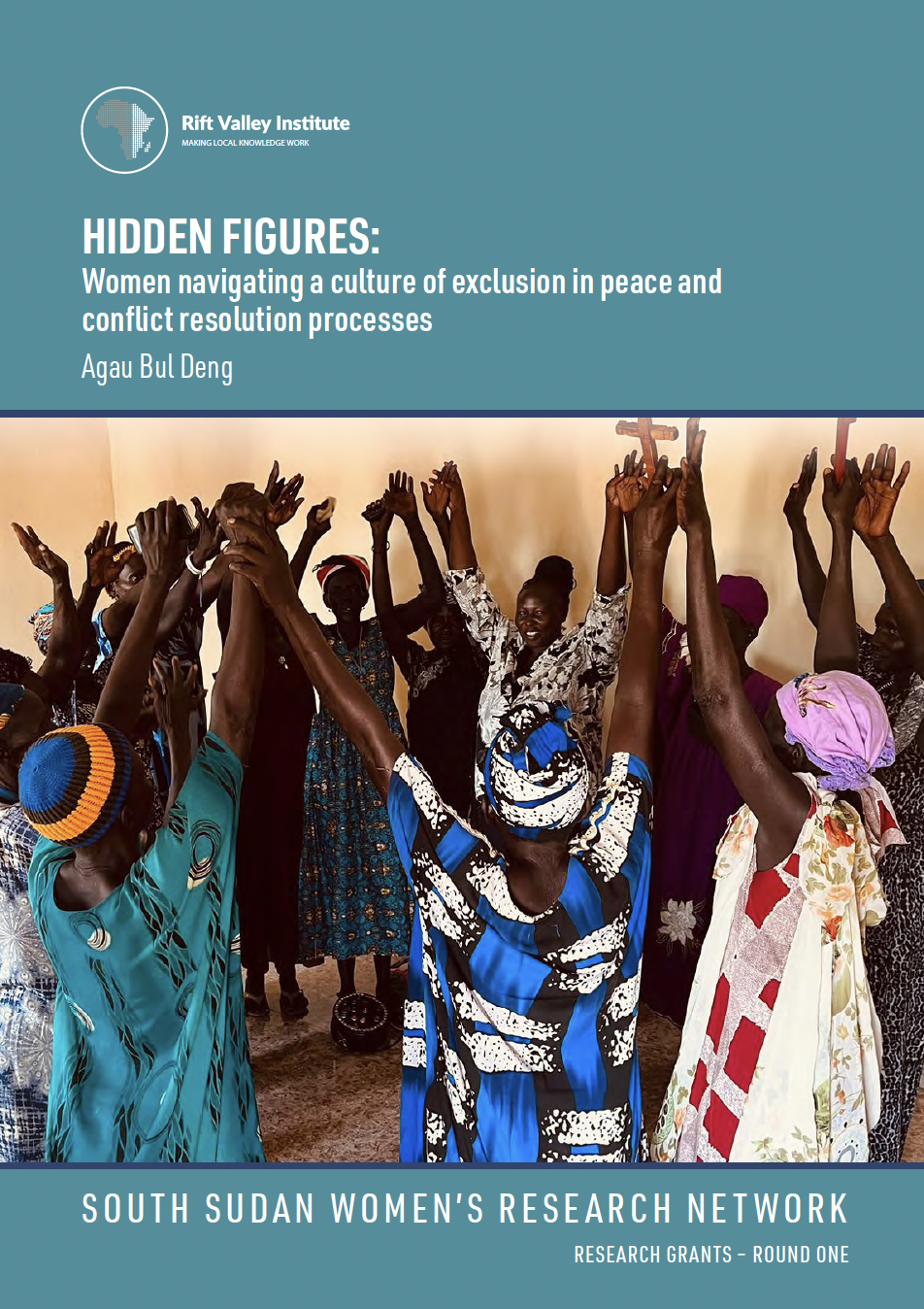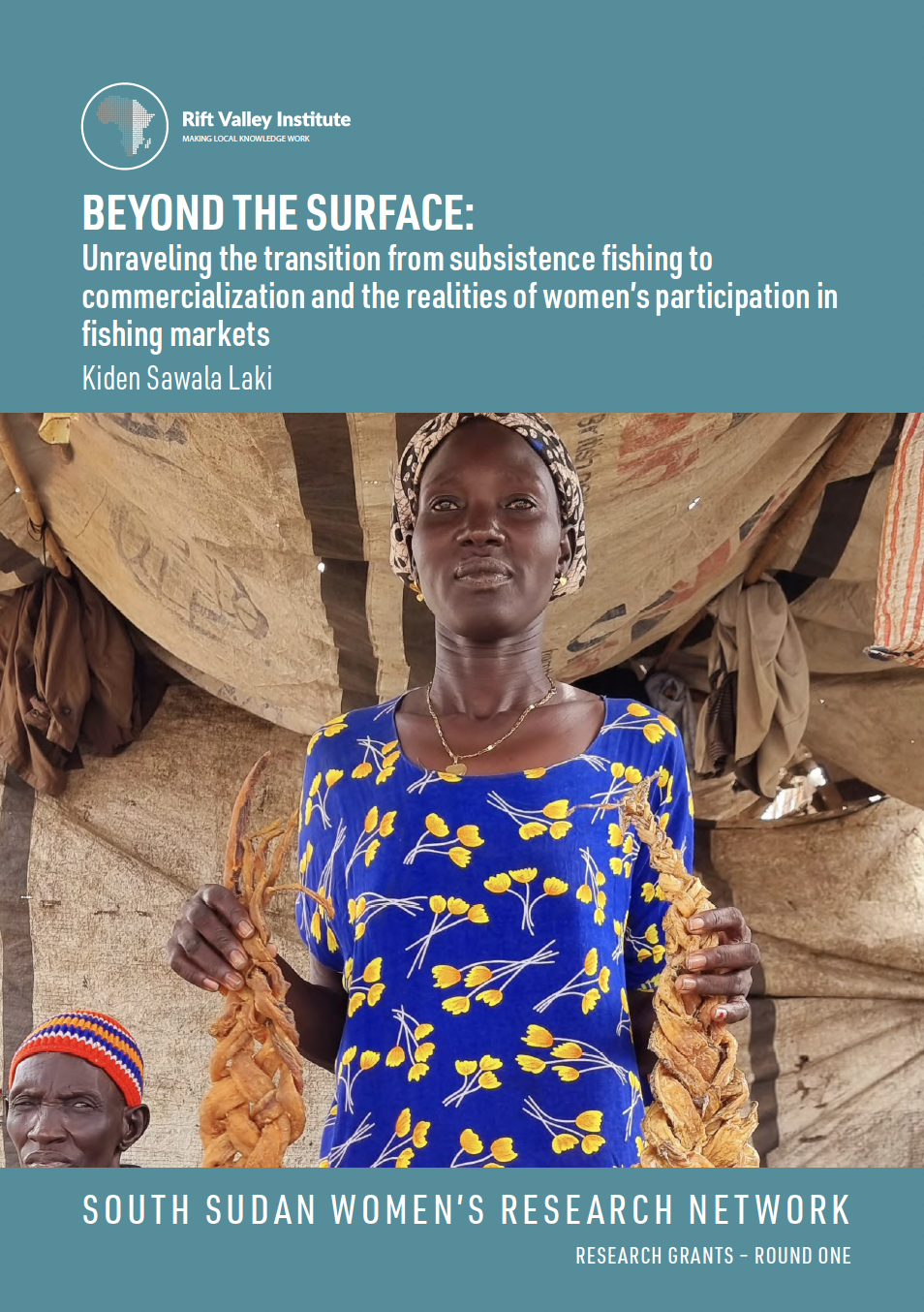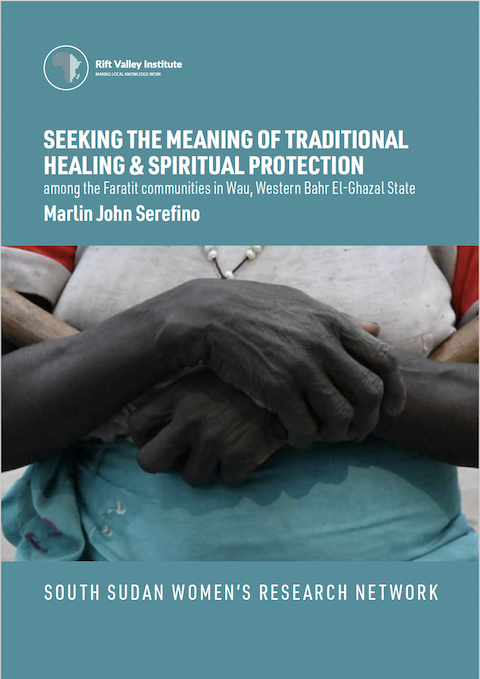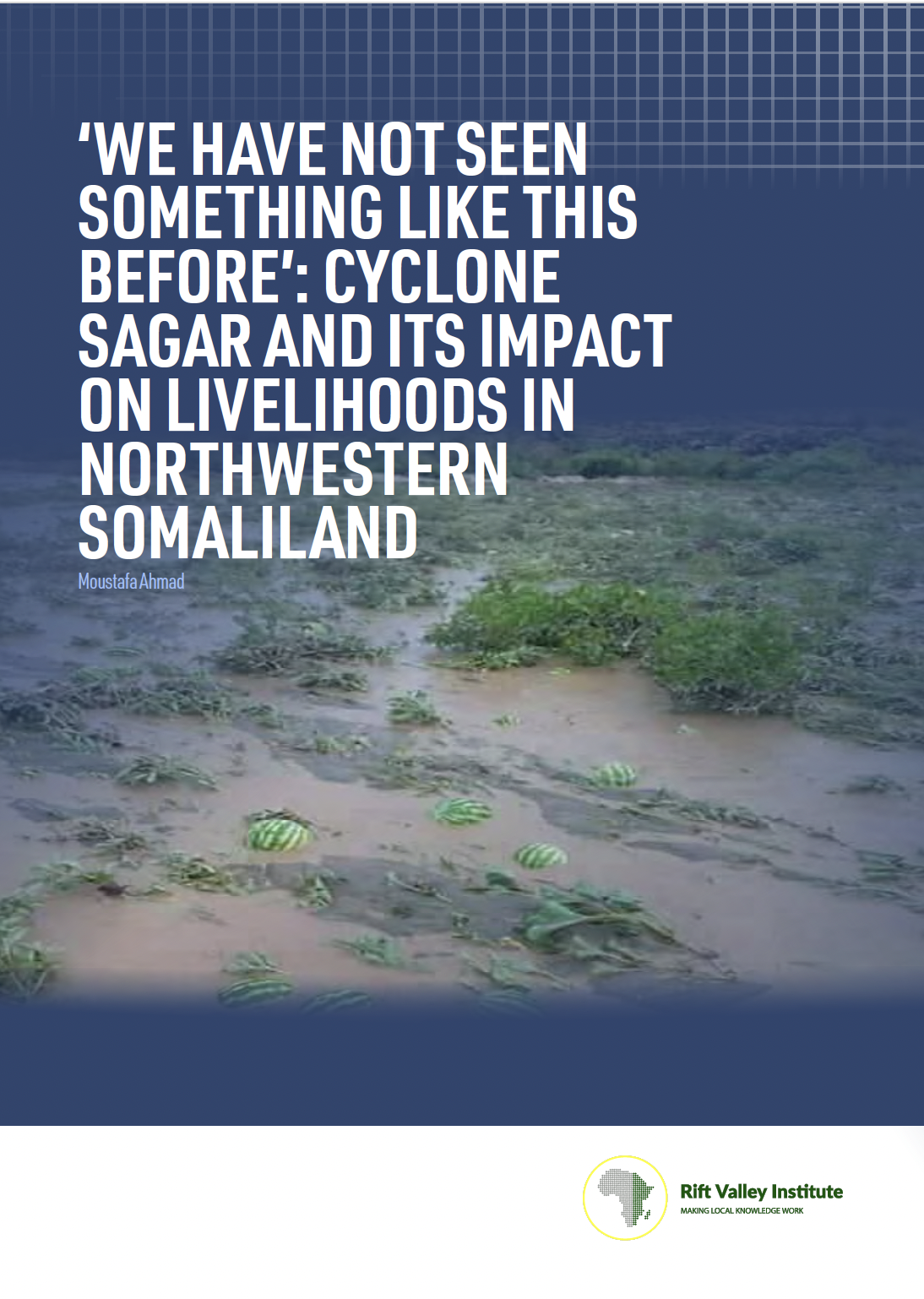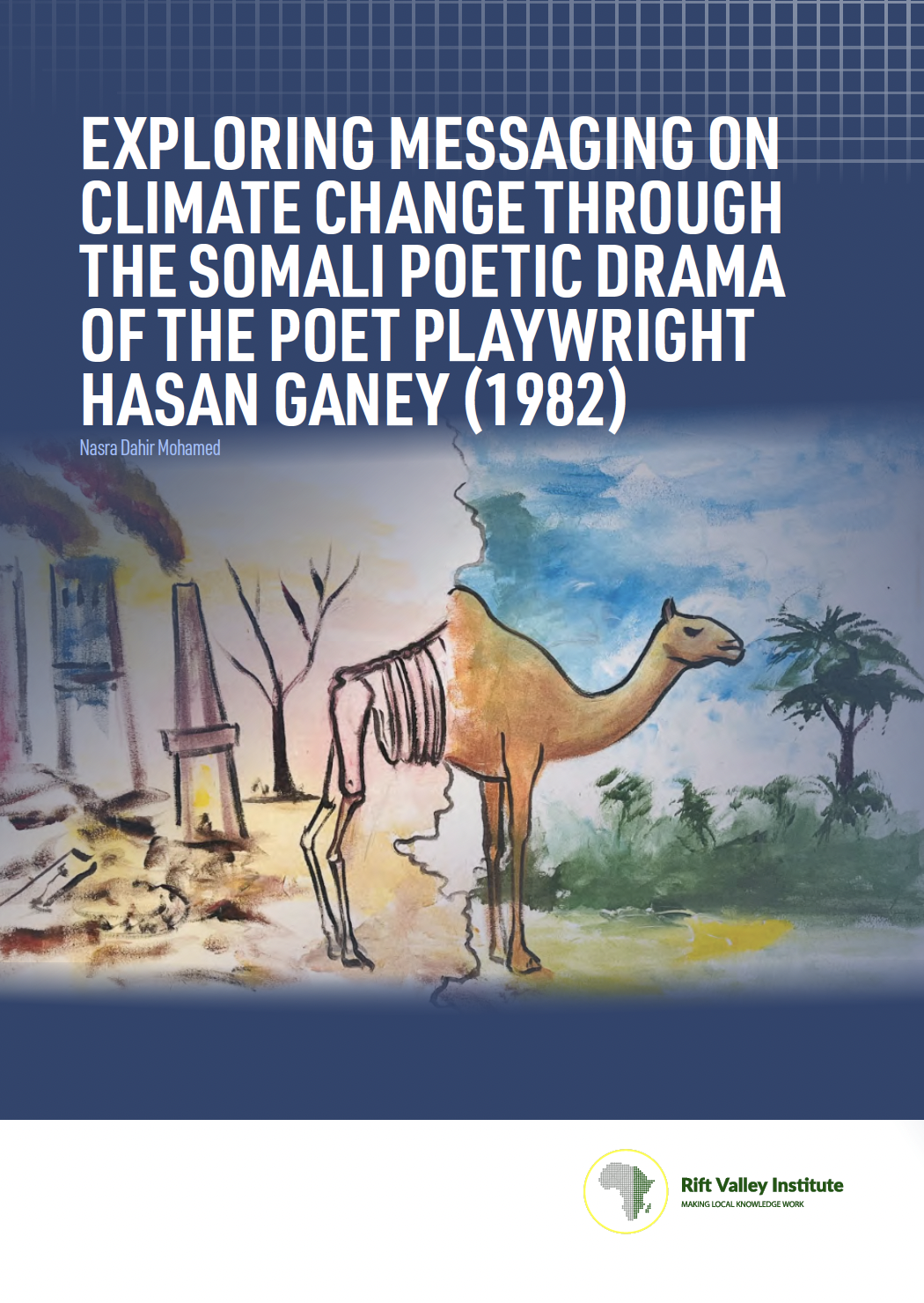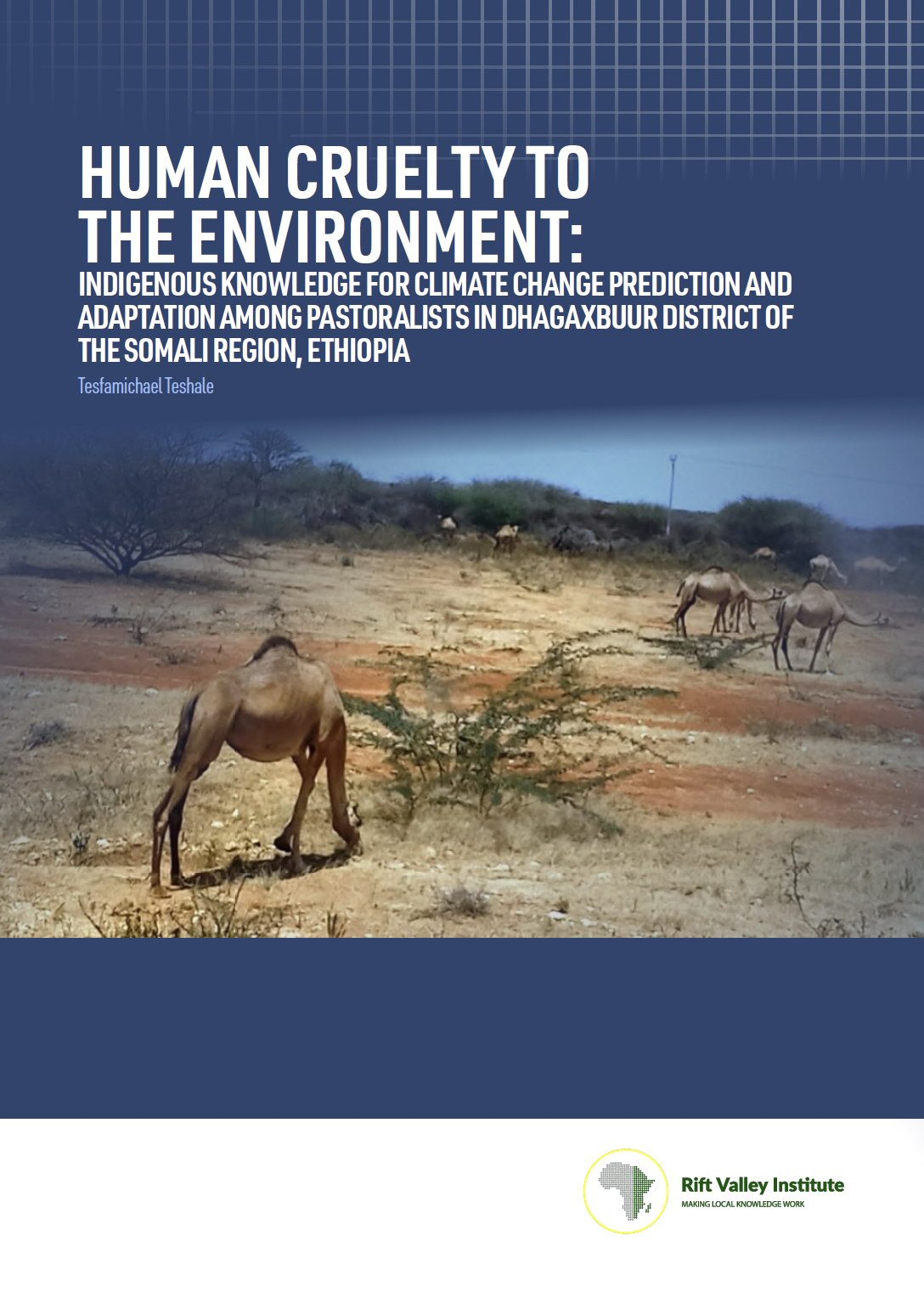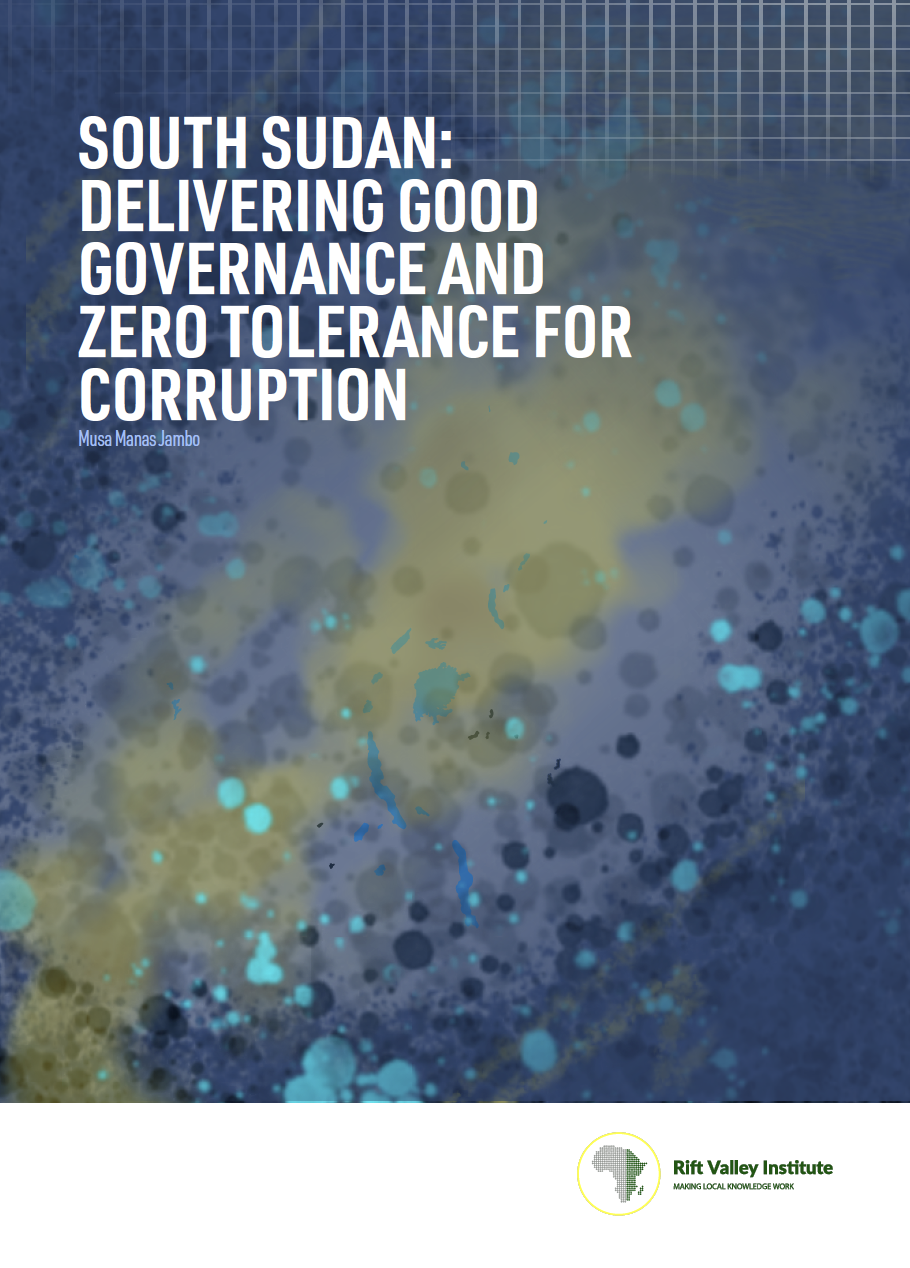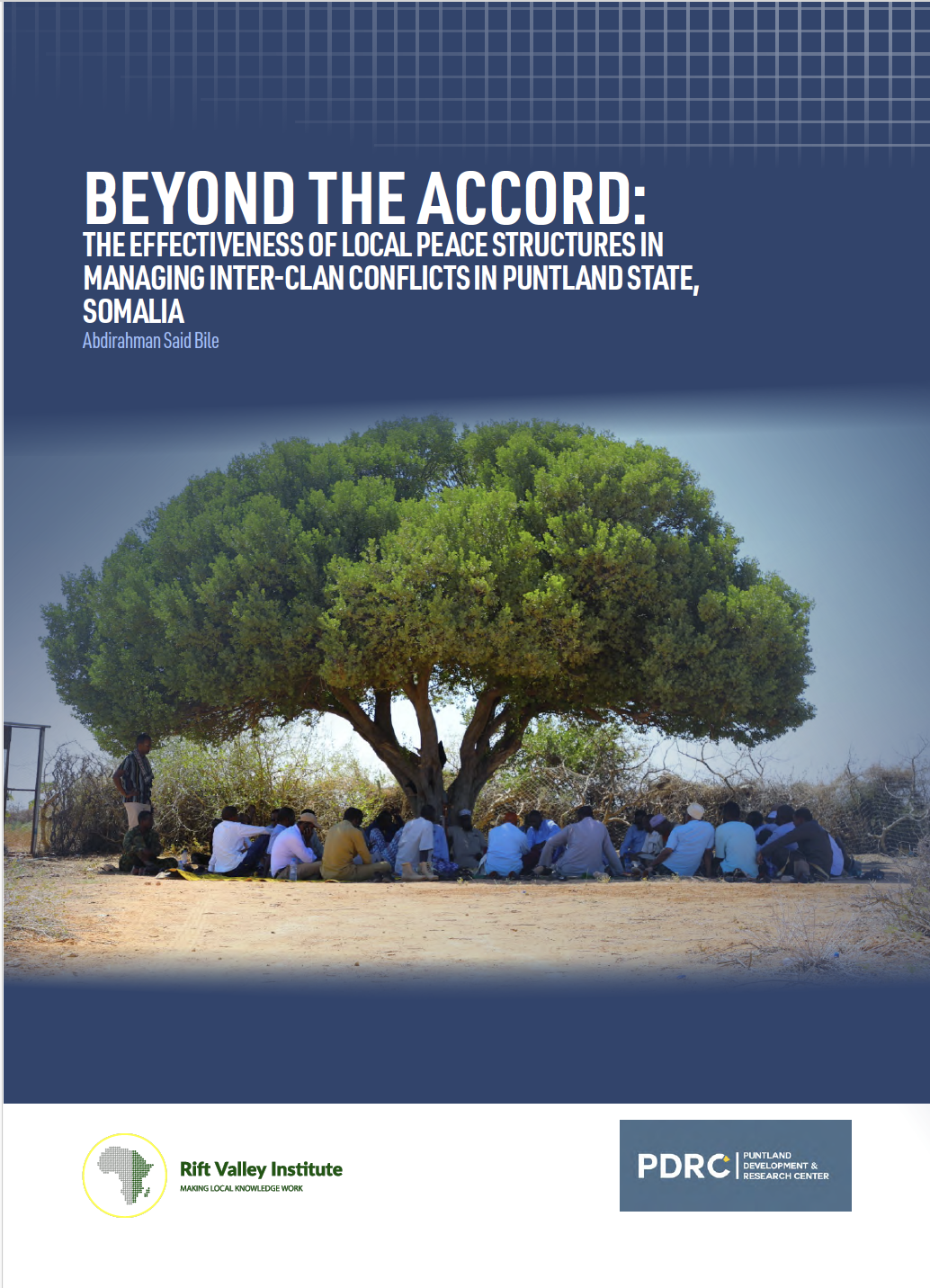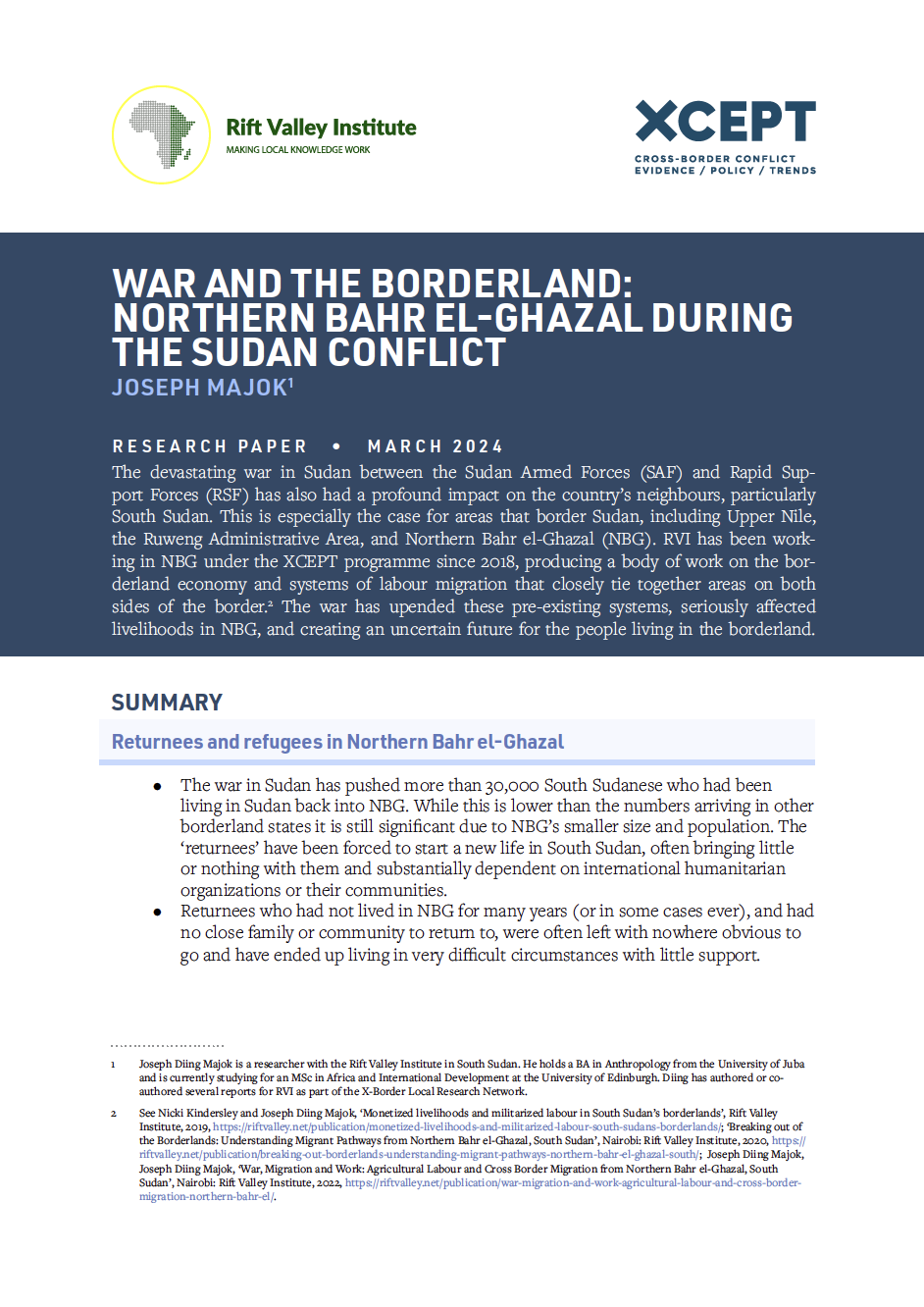This research paper builds on work the Rift Valley Institute (RVI) has conducted on the Sudan–Ethiopia borderland under the XCEPT programme since 2021. This culminated in the report ‘Resistance in the Peripheries: Fragile peace and civil war in Sudan…
RVI publishes books, research reports, research papers, briefings and meeting reports in a range of formats. Publications cover policy, research, arts, culture and local knowledge in the countries of eastern and central Africa. Research publications—books, reports and papers—are peer-reviewed. Some RVI publications are also available in French and/or Arabic.
The RVI is a signatory of the Budapest Open Access Initiative (2001); all publications are free for download in PDF format under Creative Commons licences. The views expressed in books and reports published by the RVI are those of the authors, not the Institute.
SEARCH
PUBLICATION TYPE
LANGUAGE
REGION
COUNTRY
This report examines the roles of women in peace and conflict resolution processes in South Sudan. It highlights how women navigate systemic exclusion and use cultural practices like songs and dance to assert their voices and influence decisions. Despite…
This report examines the impact of local fishing practices on women’s livelihoods in Lake State, South Sudan. It highlights the transition from traditional fishing to market-oriented fishing and the resulting economic opportunities and challenges for women. Despite historical gender…
South Sudan’s healthcare system faces significant challenges, particularly in rural areas where access to clinical services is limited and costly. Many South Sudanese turn to traditional healers who use herbal medicines and spiritual methods due to a lack of…
EXECUTIVE SUMMARY Cyclone Sagar is arguably the most devastating climate-related crisis to have hit Somaliland in contemporary history. Dominant literature to date lays the emphasis on recurring droughts in the region, since drought is the most prevalent natural hazard….
EXECUTIVE SUMMARY This paper delves into the realm of climate change through an exploration of the Somali poetic drama of Hasan Ganey, focusing specifically on the Calamities are the Best Educators in the Globe drama, performed in 1982 by…
INDIGENOUS KNOWLEDGE FOR CLIMATE CHANGE PREDICTION AND ADAPTATION AMONG PASTORALISTS IN DHAGAXBUUR DISTRICT OF THE SOMALI REGION, ETHIOPIA EXECUTIVE SUMMARY This paper explores how indigenous climate change prediction mechanisms help climate change adaptation among Somali pastoralists in Dhagaxbuur district…
EXECUTIVE SUMMARY Putting good governance into effect in the nascent state of South Sudan has proven to be a nightmare, largely due to the presence of recalcitrant public institutions where public affairs and resources are unethically executed, undermining other…
THE EFFECTIVENESS OF LOCAL PEACE STRUCTURES IN MANAGING INTER-CLAN CONFLICTS IN PUNTLAND STATE, SOMALIA EXECUTIVE SUMMARY Clan conflicts in Somalia have a long history, dating back to the colonial era through to the period before the collapse of the…
The devastating war in Sudan between the Sudan Armed Forces (SAF) and Rapid Support Forces (RSF) has also had a profound impact on the country’s neighbours, particularly South Sudan. This is especially the case for areas that border Sudan,…
Recent Publications

EWNET Writes: Writing Workshop Session I
December 18, 2025
The Ethiopian Women Researchers Network (EWNET) inaugural writing workshop series aims to not only provide women researchers with uninterrupted time for their scholarly projects, but also build a supportive academic community. The first session, entitled ‘EWNET Writes: Writing Workshop Session

SSC-Khaatumo: Perspectives on the significance and implications of its formation
December 12, 2025
On 15 April 2025, during a visit to the city of Las Anod in Sool, Prime Minister Hassan Abdi Barre officially declared the federal government’s recognition of SSC-Khaatumo (SSC-K hereafter) as a federal member state, marking an important milestone in

Aid and Conflict Sensitivity in Contemporary Ethiopia
November 17, 2025
This study assesses conflict sensitivity practices among humanitarian, development and peacebuilding (HDP) actors in Ethiopia. It seeks to raise awareness and foster a deeper understanding of the evolving aid landscape in the country while analysing the challenges that affect conflict-sensitive


